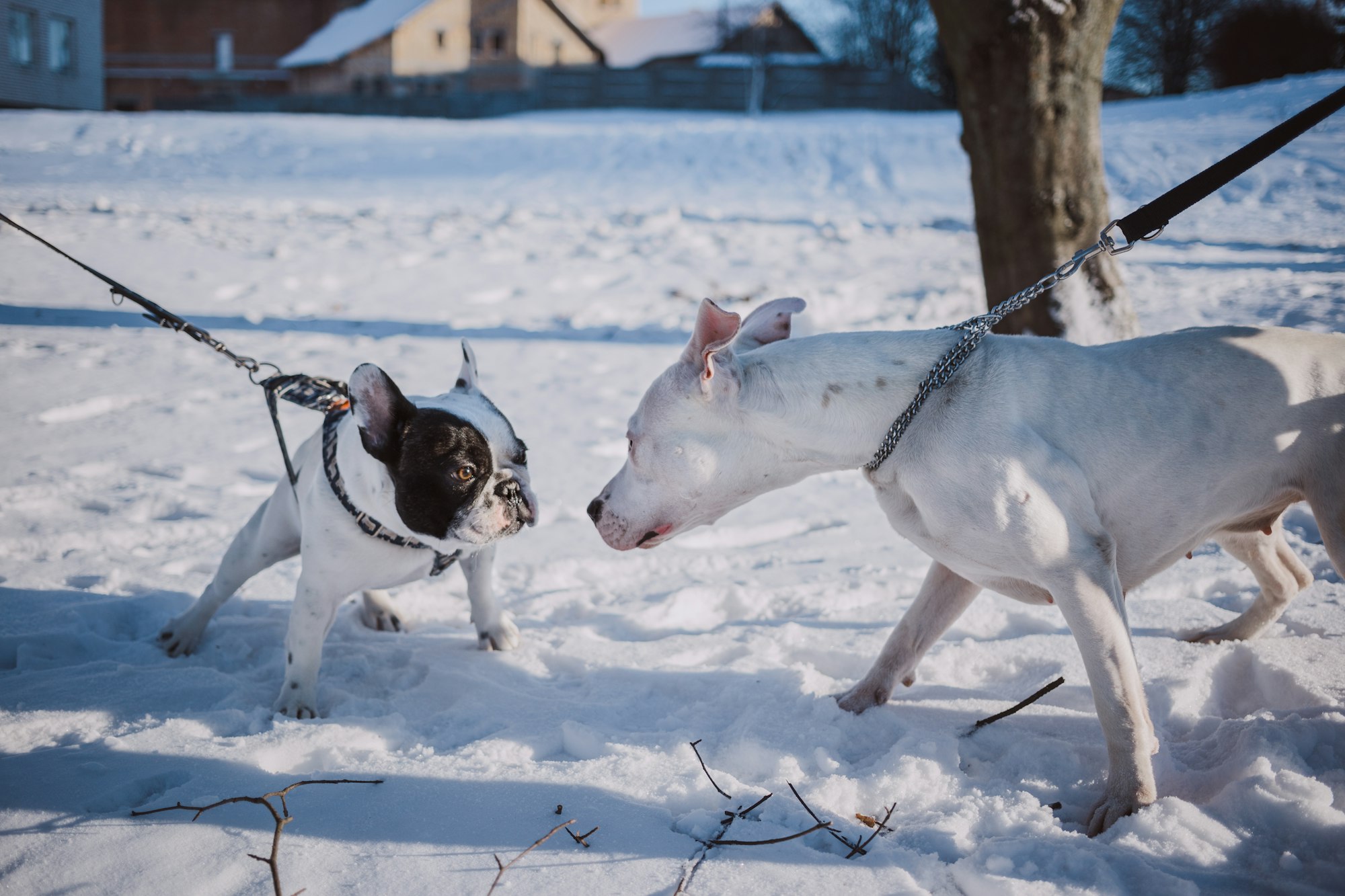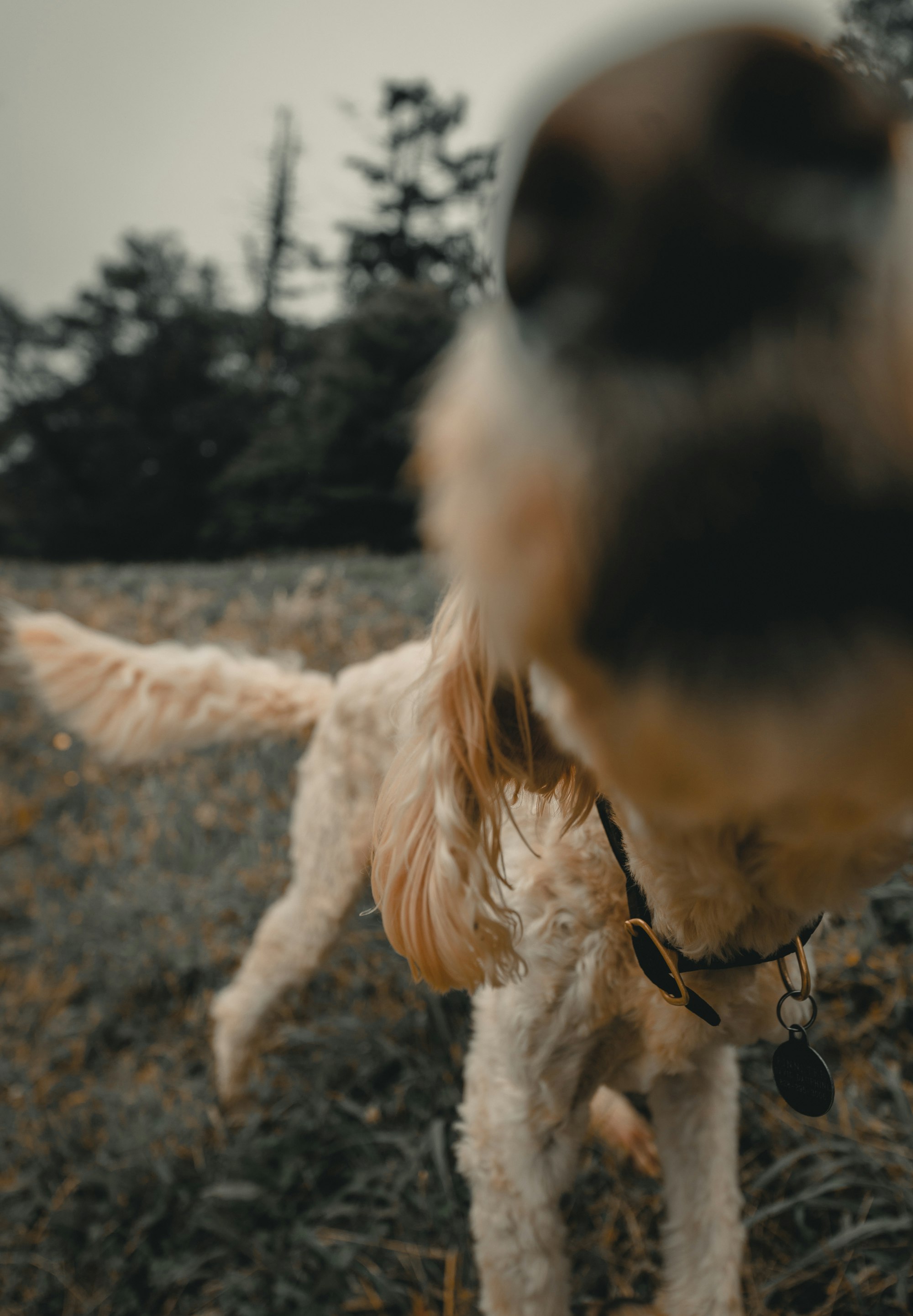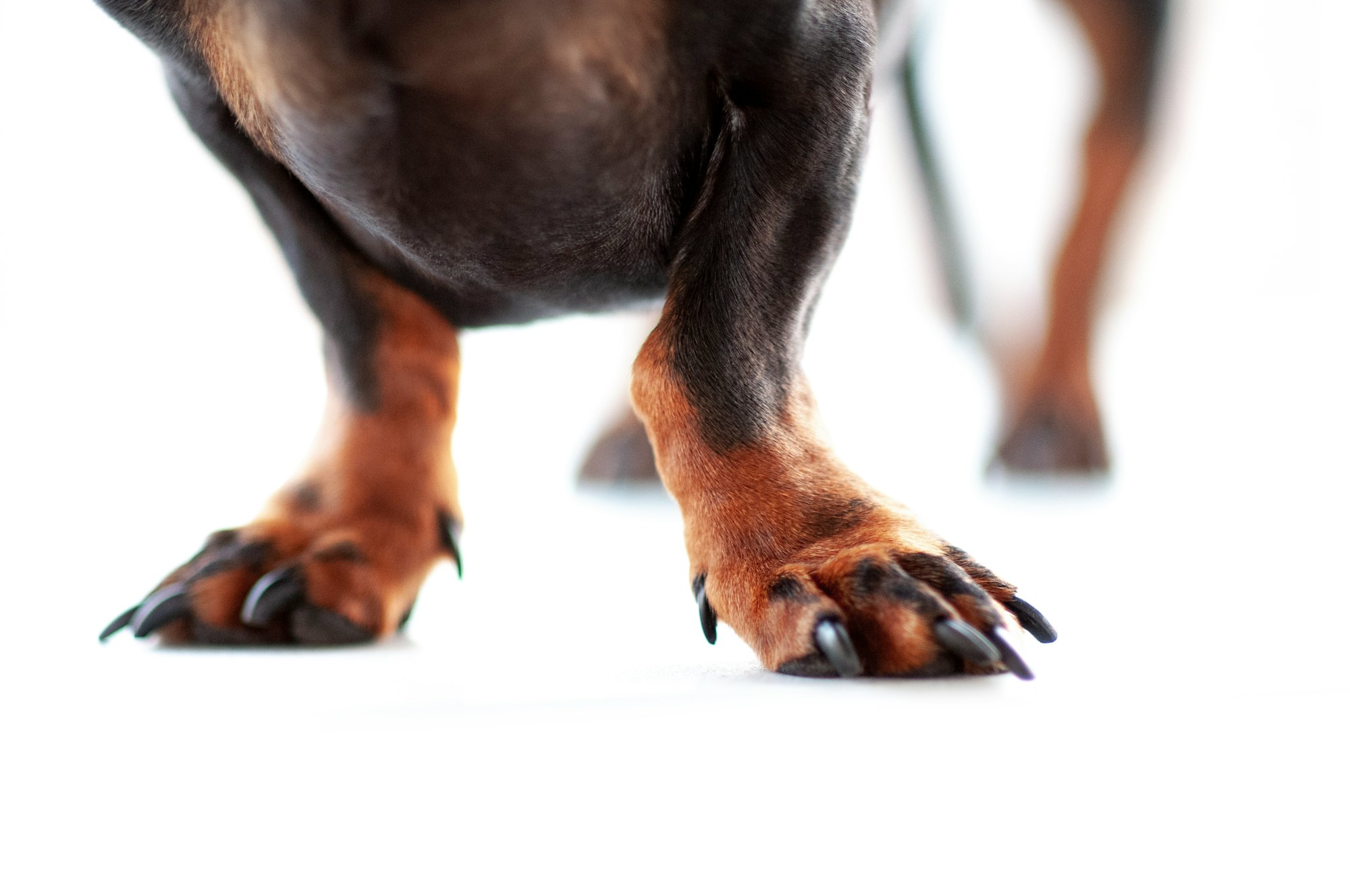Let's be honest, dogs are kinda obsessed with butts. And while we might cringe at the thought of our furry friends sticking their noses where the sun don't shine, there's actually a method to their madness.
You see, butt-sniffing is like a secret handshake among dogs - it's their way of saying "Hey, how's it going? What's your deal? Can we be friends?" They're not trying to be weird (well, maybe a little), they're just checking each other out like a bunch of furry detectives.
So, the next time you catch your pup sniffing another dog's butt, just remember that they're not being rude - they're just getting the scoop on the neighborhood gossip. Who knows, maybe we humans could benefit from a little butt-sniffing too. Okay, maybe not.
In this article, we'll delve into the science behind this seemingly peculiar behavior to uncover the reasons why dogs sniff butts. Along the way, we'll explore how this curious canine custom facilitates social interaction, helps our pets assess their environment, and ultimately strengthens the bond between human and dog. Prepare to be captivated as we demystify the olfactory art of butt-sniffing, an important aspect of canine communication that has stood the test of time.
Why Do Dogs Sniff Other Dog’s Butts?
Dogs sniff other dogs' butts as a form of social interaction and to gather crucial information about one another. This behavior is driven by their powerful sense of smell and an innate desire to understand their surroundings and the individuals they encounter. Here are some key reasons why dogs engage in this seemingly peculiar behavior:
Communication: The primary purpose of butt-sniffing is communication. Dogs have a specialized olfactory organ called the Jacobson's organ, or the vomeronasal organ, located in the nasal cavity. This organ enables them to detect and process specific chemical compounds, known as pheromones, that are secreted by other dogs. By sniffing another dog's rear end, they gather information about the dog's gender, reproductive status, emotional state, and overall health.
Establishing hierarchy: In the canine world, social hierarchy is important for maintaining harmony within a group. Sniffing each other's butts helps dogs determine their position within the social structure. By analyzing the scents emitted from the anal glands, dogs can discern if they're encountering a dominant or submissive individual, allowing them to adjust their behavior accordingly.
Familiarization: Butt-sniffing serves as a way for dogs to familiarize themselves with new acquaintances. Just as humans rely on facial recognition and verbal introductions, dogs use their sense of smell to identify and remember other dogs. This form of greeting helps dogs form social bonds and establish familiarity with one another.
Health assessment: Sniffing another dog's rear end can provide insight into their overall well-being. Certain scents may indicate a dog is sick, injured, or experiencing stress. This information helps dogs evaluate if a new acquaintance poses a threat or if they should approach with caution.
Butthole Pheromones and Chemical Communication
First and foremost, it's important to understand that dogs rely heavily on their sense of smell to gather information about their surroundings, including other dogs. When a dog sniffs another dog's butt, they are actually analyzing the scent produced by the anal glands, which contain a unique combination of pheromones and chemical signals.
These anal gland secretions contain information about the dog's age, sex, reproductive status, and even their emotional state. Essentially, dogs are able to learn a great deal about each other through this form of chemical communication.
In fact, dogs can even identify individual scents, much like humans recognize each other by their faces. This is why dogs are often able to identify and greet specific dogs they have met before, even after a long period of time has passed.

What Does Butt-Sniffing Have to Do with Dog Behavior?
Butt-sniffing is a natural behavior in dogs that serves multiple purposes related to their communication and social behavior. As mentioned earlier, it's a form of chemical communication that allows dogs to gather information about each other's identity, social status, and emotional state. This information is important for establishing and maintaining social bonds within a group of dogs.
Butt-sniffing is also a way for dogs to greet each other and initiate social interaction. By sniffing each other's anal glands, dogs can learn about each other's intentions and attitudes. For example, if one dog is fearful or aggressive, their anal gland secretions may reflect that, and other dogs can pick up on those signals to adjust their behavior accordingly.
In addition, butt-sniffing can help dogs resolve conflicts and avoid aggression. When two dogs meet for the first time, they may engage in a brief sniffing exchange to assess each other's intentions and establish a hierarchy. If one dog seems submissive or uninterested in engaging in conflict, the other dog may back off and avoid a confrontation.
Overall, butt-sniffing is an important part of canine behavior and communication. While it may seem strange or even unpleasant to humans, it's a natural and necessary behavior for dogs to engage in to navigate their social world.
Should You Allow Your Dog to Sniff Other’s Butts?
Yes, you should generally allow your dog to sniff other dogs' butts, as it is a natural behavior that serves important social and communicative functions for dogs. However, it's also important to use common sense and good judgment when it comes to allowing your dog to interact with other dogs.
For example, if you're introducing your dog to a new dog for the first time, it's a good idea to supervise their interaction and give them time to sniff each other before letting them play or interact more closely. If you notice any signs of aggression or discomfort, it may be best to separate the dogs and try again later or with a different dog.
It's also important to be respectful of other dog owners' wishes and boundaries when it comes to butt-sniffing. Some people may not be comfortable with their dog being sniffed by another dog, or they may have a dog that is not social or friendly with other dogs. In these cases, it's best to respect their wishes and keep your dog at a safe distance.
Allowing your dog to engage in natural behaviors like butt-sniffing can help them feel more comfortable and confident in social situations, and can help them communicate more effectively with other dogs. Just be sure to use common sense and good judgment when it comes to your dog's interactions with other dogs.
Are Certain Dogs More Prone to Butt Sniffing?
All dogs have a natural instinct to sniff each other's butts as a form of communication and social interaction, so in that sense, all dogs are equally prone to butt sniffing. However, some individual dogs may be more interested in and engaged with this behavior than others.
Factors that can influence a dog's interest in butt sniffing include their age, sex, and socialization history. For example, young puppies may be especially curious and interested in sniffing other dogs' butts as they learn about their environment and social cues. Male dogs may also be more inclined to engage in butt sniffing than females, as they are more likely to be interested in reproductive and social dominance cues.
In addition, a dog's socialization history can also influence their interest in butt sniffing. Dogs that have had positive experiences with other dogs and have been well-socialized from a young age are likely to be more comfortable and engaged with other dogs, including engaging in butt sniffing behavior.
Overall, while all dogs have a natural inclination to sniff each other's butts, individual dogs may have varying levels of interest in and engagement with this behavior based on factors like their age, sex, and socialization history.

Can I Train My Pet Not to Sniff Other Dogs' Butts?
While it's possible to train your dog to refrain from sniffing other dogs' butts, it's important to keep in mind that this behavior is a natural and important part of canine communication and socialization. Therefore, it may not be advisable or necessary to completely eliminate this behavior from your dog's repertoire.
However, if you have concerns about your dog's behavior around other dogs, including excessive butt sniffing, you can work with a professional dog trainer to modify their behavior and improve their social skills. This may involve teaching your dog alternative behaviors to engage in when greeting other dogs, such as sitting or offering a paw, or using positive reinforcement techniques to encourage them to maintain appropriate boundaries during interactions.
It's also important to continue socializing your dog with other dogs in a controlled and positive environment, as this can help them develop good social skills and reduce the likelihood of problem behaviors like excessive butt sniffing or aggression.
My Dog Isn't a Butt Sniffer — Should I Worry?
If your dog isn't a frequent butt sniffer, there is generally no need to worry. While butt sniffing is a natural behavior for dogs, not all dogs engage in this behavior as frequently or as enthusiastically as others.
Some dogs may be more interested in other forms of social interaction, such as play or vocalization, while others may be more reserved or cautious around other dogs. As long as your dog is generally well-adjusted and comfortable around other dogs, their lack of interest in butt sniffing is unlikely to be a cause for concern.
However, if you have concerns about your dog's behavior or social skills around other dogs, it's always a good idea to consult with a professional dog trainer or behaviorist. They can help you assess your dog's behavior and provide guidance on how to improve their social skills and interactions with other dogs.
End Thoughts
In conclusion, butt sniffing is a natural and important behavior for dogs that serves multiple social and communicative functions. While it may seem strange or unpleasant to humans, it's an essential part of canine socialization and communication, allowing dogs to gather important information about each other's identity, social status, and emotional state.
As dog owners, it's important to understand and respect our dogs' natural behaviors, including butt sniffing, and to use common sense and good judgment when it comes to our dogs' interactions with other dogs. While it may be possible to modify certain behaviors through training and socialization, it's important to remember that dogs are individuals with their own unique personalities and preferences, and we should always strive to create a positive and comfortable environment for them to thrive in.
For more helpful articles about pet-parenting tips, check out the Off Leash blog at TryFi.com.
Want to know more about TryFi.com? The Fi Dog Collar is a GPS tracking collar that not only keeps track of your dog’s location, activity levels, and sleep patterns, but it also alerts you if your dog escapes your backyard. This is the fastest way to find your dog after an escape. Try the Fi Dog Collar today!

